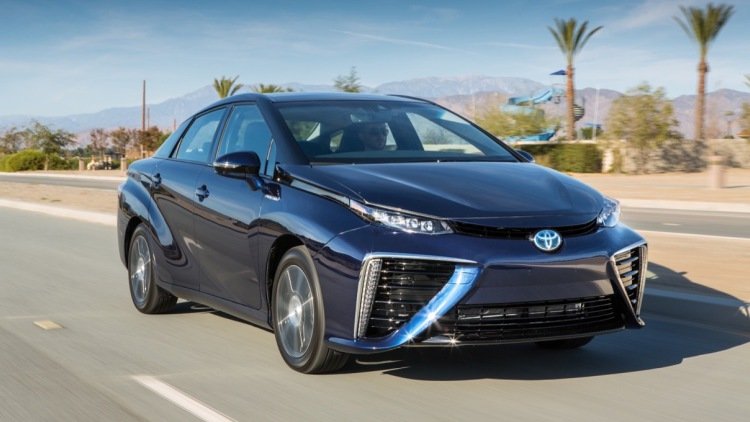Toyota 'Mirai C,' A Smaller, Cheaper FCEV, Could Debut In 2019

The new model will reportedly hit the road in 2019 at a cost of 5.5 million to 6.0 million yen ($50,600 to $55,200 US at current exchange rates). In comparison, the current Mirai costs 7.23 million yen ($66,500), but government subsidies bring the actual price for customers down to a little over 5 million yen ($46,000). If the same level of incentives applies to the upcoming FCEV, it might cost around the equivalent of $32,000.
As a smaller vehicle, the unnamed model sounds like it would be a Mirai C, in the spirit of the Prius C and the standard Prius. Toyota also plans to reduce production costs by automating some of the steps that currently require installation by hand on the Mirai, according the Asahi Shimbun.
An earlier report hinted Toyota would grow the Mirai family, but it speculated the lack of hydrogen infrastructure would make the process quite slow. This new report suggests otherwise, putting the launch of a second FCEV not very long behind the first Mirai.
The prospect of introducing a cheaper FCEV before too much time passes makes some sense, especially for Toyota in Japan. The country's leaders want to present Tokyo as a high-tech metropolis during the Olympics. Part of that plan is the goal of having 100 hydrogen-fueled buses and 1,000 H2 passenger cars on city's roads in time for the opening ceremony. The government wants 6,000 FCEVs across the country by that time, too. Toyota is also an Olympic sponsor, so it wants to project a leading position at the games.
